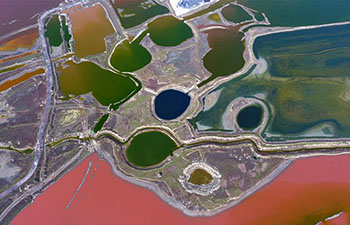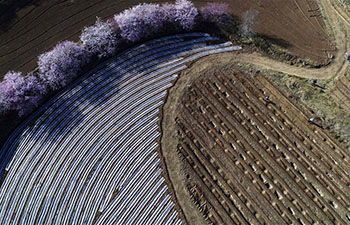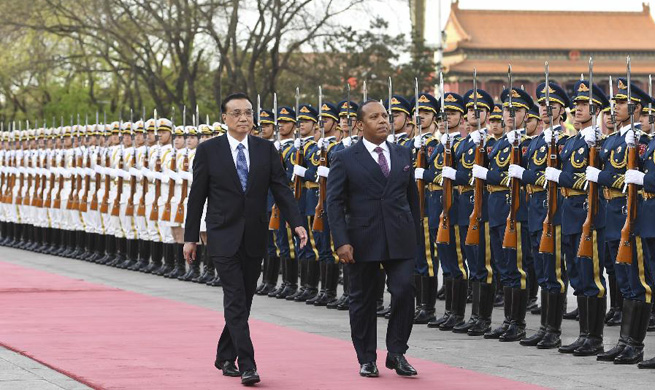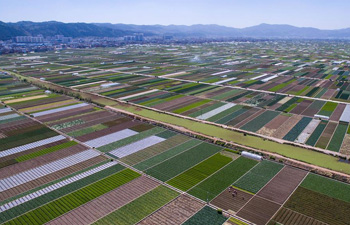DAR ES SALAAM, April 13 (Xinhua) -- A new report released on Thursday highlighted challenges facing timber trading nations in eastern and southern Africa, in particular the need for improving trade monitoring, financial integrity and addressing issues related to politics and corruption.
The report, jointly authored by TRAFFIC, the wildlife trade monitoring network, and World Wildlife Fund (WWF), was launched as representatives from across the region met in the Kenyan capital Nairobi to discuss implementation of the Zanzibar Declaration on illegal trade in timber and other forest products.
The Declaration was signed in 2015 as part of an initiative to address rampant illegal timber trade in eastern and southern Africa under the umbrella of the Southern African Development Community (SADC) and the Eastern African Community (EAC).
Key among the recommendations from the new report are calls for full government participation in forest-related multilateral agreements, such as those under SADC and EAC, to address issues undermining legal timber production.
The report urged SADC and EAC Secretariats to collaborate to capture information from government forestry, revenue collection, customs, and ports authorities and make the data publicly available.
"Collection of appropriate and adequate data is an essential pre-requisite for management of timber resources, and maintaining these in an open and transparent manner is a sound basis for ensuring timber trade is carried out legally and sustainably," said Julie Thomson, TRAFFIC Head of Office in East Africa.
The report said the trade in natural forest timber was worth tens of millions of dollars in the last decade and is increasing, with domestic consumption, although poorly monitored, estimated to be more than ten times the volumes exported internationally.
It said the majority of timber imports to the region comprise coniferous sawn timber and eucalyptus electricity poles.
Most of the countries also import processed forest products, mostly paper, plywood and fibreboard, furniture, doors, fittings and joinery, with South Africa, Kenya, China, and India dominating the market, said the report.
However, the report noted that despite existing policies, laws and international protocols, most forestry departments in the region do not have adequate capacity to routinely monitor the industry.
"This week, governments have a golden opportunity to ensure the right measures are put in place and widely adopted to control timber trade flows within and from the region," said Geofrey Mwanjela, Eastern Africa Forest Coordinator for WWF.
"It's in everyone's best interests to ensure a fair, equitable and sustainable timber trade becomes the norm in eastern and southern Africa," added Mwanjela.

















